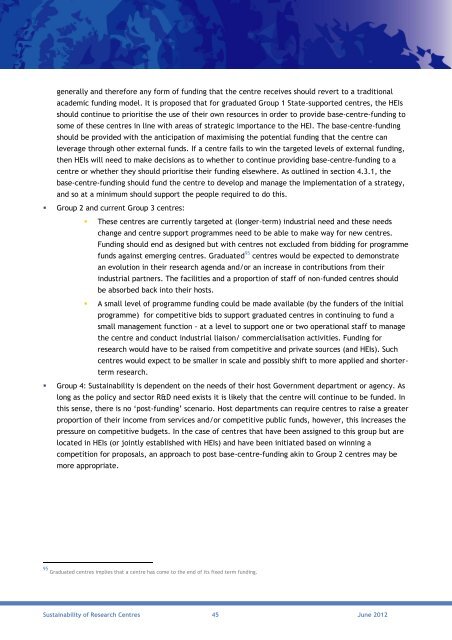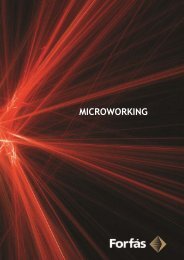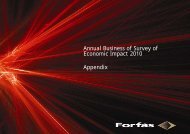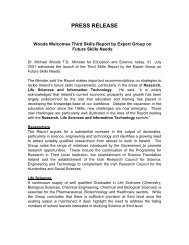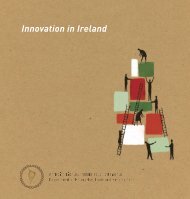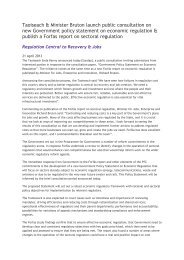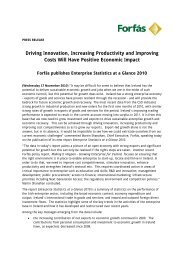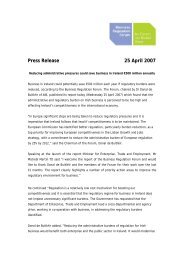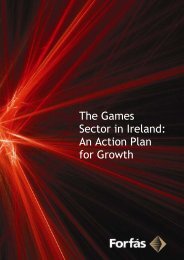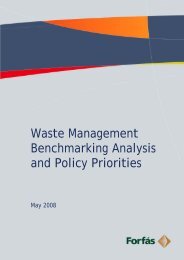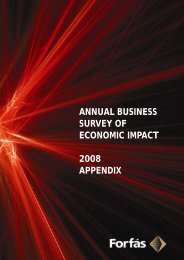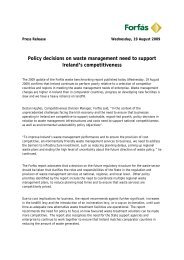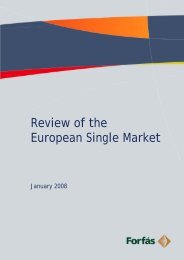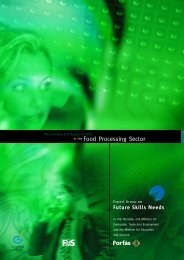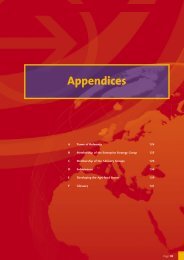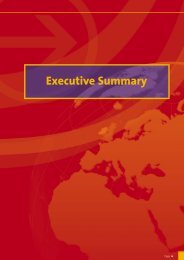Sustainability of Research Centres - Advisory Science Council
Sustainability of Research Centres - Advisory Science Council
Sustainability of Research Centres - Advisory Science Council
Create successful ePaper yourself
Turn your PDF publications into a flip-book with our unique Google optimized e-Paper software.
generally and therefore any form <strong>of</strong> funding that the centre receives should revert to a traditional<br />
academic funding model. It is proposed that for graduated Group 1 State-supported centres, the HEIs<br />
should continue to prioritise the use <strong>of</strong> their own resources in order to provide base-centre-funding to<br />
some <strong>of</strong> these centres in line with areas <strong>of</strong> strategic importance to the HEI. The base-centre-funding<br />
should be provided with the anticipation <strong>of</strong> maximising the potential funding that the centre can<br />
leverage through other external funds. If a centre fails to win the targeted levels <strong>of</strong> external funding,<br />
then HEIs will need to make decisions as to whether to continue providing base-centre-funding to a<br />
centre or whether they should prioritise their funding elsewhere. As outlined in section 4.3.1, the<br />
base-centre-funding should fund the centre to develop and manage the implementation <strong>of</strong> a strategy,<br />
and so at a minimum should support the people required to do this.<br />
Group 2 and current Group 3 centres:<br />
These centres are currently targeted at (longer-term) industrial need and these needs<br />
change and centre support programmes need to be able to make way for new centres.<br />
Funding should end as designed but with centres not excluded from bidding for programme<br />
funds against emerging centres. Graduated 95 centres would be expected to demonstrate<br />
an evolution in their research agenda and/or an increase in contributions from their<br />
industrial partners. The facilities and a proportion <strong>of</strong> staff <strong>of</strong> non-funded centres should<br />
be absorbed back into their hosts.<br />
A small level <strong>of</strong> programme funding could be made available (by the funders <strong>of</strong> the initial<br />
programme) for competitive bids to support graduated centres in continuing to fund a<br />
small management function - at a level to support one or two operational staff to manage<br />
the centre and conduct industrial liaison/ commercialisation activities. Funding for<br />
research would have to be raised from competitive and private sources (and HEIs). Such<br />
centres would expect to be smaller in scale and possibly shift to more applied and shorter-<br />
term research.<br />
Group 4: <strong>Sustainability</strong> is dependent on the needs <strong>of</strong> their host Government department or agency. As<br />
long as the policy and sector R&D need exists it is likely that the centre will continue to be funded. In<br />
this sense, there is no ‘post-funding’ scenario. Host departments can require centres to raise a greater<br />
proportion <strong>of</strong> their income from services and/or competitive public funds, however, this increases the<br />
pressure on competitive budgets. In the case <strong>of</strong> centres that have been assigned to this group but are<br />
located in HEIs (or jointly established with HEIs) and have been initiated based on winning a<br />
competition for proposals, an approach to post base-centre-funding akin to Group 2 centres may be<br />
more appropriate.<br />
95 Graduated centres implies that a centre has come to the end <strong>of</strong> its fixed term funding.<br />
<strong>Sustainability</strong> <strong>of</strong> <strong>Research</strong> <strong>Centres</strong> 45 June 2012


